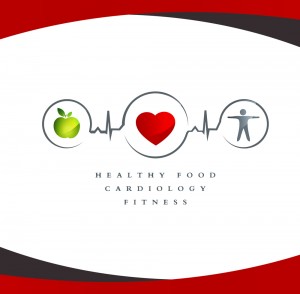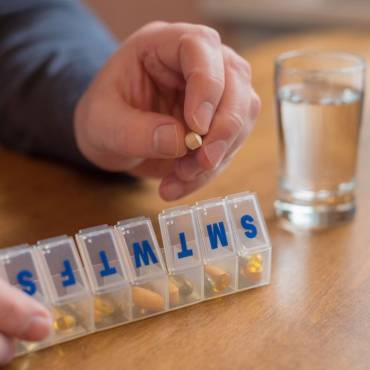In today’s busy life, people do not have time to take care of their own health. They do not keep a check on their diet because of tight schedules and other commitments. Having a job is pretty stressful and this increases the risk of getting attacked by various diseases.
 A healthy diet and a fit body leads to a healthy life, which one can get after having proper control over diet. If we do not keep a check on unhealthy eating habits and do not follow proper fitness regimes, then we are at risk of developing high cholesterol, which is one of the main reasons behind severe heart diseases. Cholesterol is a waxy, fat-like substance that is generated in the liver and other cells. Certain foods like dairy products, eggs, and meat are high sources of cholesterol.Cholesterol is an important substance for the body’s normal functioning, but high levels of cholesterol becomes a silent danger and puts us at risk of heart attack and strokes.
A healthy diet and a fit body leads to a healthy life, which one can get after having proper control over diet. If we do not keep a check on unhealthy eating habits and do not follow proper fitness regimes, then we are at risk of developing high cholesterol, which is one of the main reasons behind severe heart diseases. Cholesterol is a waxy, fat-like substance that is generated in the liver and other cells. Certain foods like dairy products, eggs, and meat are high sources of cholesterol.Cholesterol is an important substance for the body’s normal functioning, but high levels of cholesterol becomes a silent danger and puts us at risk of heart attack and strokes.
What are the types of cholesterol?
Cholesterol does not travel freely through the bloodstream. But, it gets transported through the blood stream by lipoproteins. Lipoproteins act as carriers and are made of proteins and fats. There are different types of lipoproteins and each type depends on how much protein is there in relation to cholesterol. These are mentioned below:
- Low density lipoproteins (LDL) – LDL is regarded as “bad” cholesterol. It is produced by the liver which carries cholesterol and other fats from the liver to the muscles, organs and heart. LDL also causes plaque build up on the walls of arteries. It’s very important for a person to keep his/her LDL levels low, because higher levels indicate much more cholesterol content in the blood stream. It also increases the risk of a heart attach or stroke.
- High density lipoproteins (HDL) – HDL is known as “good” cholesterol, which is produced by the liver to carry cholesterol and other lipids from tissues and organs back to the liver for recycling. Therefore, high levels of HDL are a positive indicator of a healthy heart, which also lowers your risk of heart disease.
- Triglycerides- This type of cholesterol is carried through the blood by LDL. Excess quantity of alcohol, fats or sugar in your body gets converted into triglycerides and is stored in the fat cells throughout the body.
Related: Simple Secret For High Blood Pressure Treatment You Won’t Believe!
Desired range of maintaining cholesterol levels:
Low density lipoproteins (LDL)-
- Below 70 mg/dL- Ideal for people, who are at high risk of heart disease
- Below 100 mg/dL- Ideal for people at risk of heart disease
- 100-129 mg/dL- Near ideal
- 130-159 mg/dL- Borderline high
- 160-189 mg/dL- High
- 190 mg/dL and above- Very high
High density lipoproteins (HDL)-
- Below 40 mg/dL (men) and below 50 mg/dL (women) – Poor
- 40-49 mg/dL (men) and 50-59 mg/dL (women) – Better
- 60 mg/dL and above – Best
Triglycerides:
- Normal, less than 150
- Borderline, high up to 150 to 199
- High is 200 to 499
- Very high is 500 or higher
- LDL = TC – (triglycerides/5) + HDL)
Also Read: Possible heart symptoms you shouldn’t ignore!
A hidden risk factor- Family history:
Basically, cholesterol does not show any symptoms, but the genetic factors of a family history of high cholesterol may put the person at the risk of high cholesterol, even if he/she eats right and exercises. Therefore, it is important to have a cholesterol test at the age of 20 and have follow-up tests at least once in every five years. This is because early detection of the problem allows the person to take necessary action before it’s too late.
How to lower the cholesterol levels:
 Different foods and change in the lifestyle may help in lowering the cholesterol levels of a person. Yes, there are foods to eat (and to avoid) for a healthier heart. People can follow healthy lifestyle practices like regular exercise, cutting down on consumption of red meats and sweets and many others. Taking all these precautions can help in decreasing the cholesterol levels. Some measures are listed below:
Different foods and change in the lifestyle may help in lowering the cholesterol levels of a person. Yes, there are foods to eat (and to avoid) for a healthier heart. People can follow healthy lifestyle practices like regular exercise, cutting down on consumption of red meats and sweets and many others. Taking all these precautions can help in decreasing the cholesterol levels. Some measures are listed below:
- Diet- Diet plays an important role in maintaining and disturbing the cholesterol levels of a body. Saturated fat in specific food categories increase the cholesterol levels in the body. Red meat, egg yolk, and sweets are the main sources of saturated fats. The problem with saturated fat is that it increases the LDL cholesterol level, which increases the risk of heart diseases. Therefore, you can add oats, beans, egg plant, fibre, nuts and barley along with whole grains.
- Cutting down weight– Various researches have proved that slimming down may produce a significant drop in your cholesterol level. It is necessary to drop your weight just by 5 to10 pounds to improve your cholesterol levels. Taking the crash diet route is not a good way to lower cholesterol levels but a steady loss of 1/2 to 1 pound a week is the healthiest and easiest way.
- Quit smoking- Smoking is the root cause of multiple diseases and cholesterol is one of them. It reduces HDL or good cholesterol by damaging the arteries, which puts you at greater risk for plaque that can clog your arteries. Moreover, smoking also increases your risk having a heart attack or stroke.
- Cutting down the habit of drinking alcohol- Excessive consumption of alcohol may actually increase the risk for heart disease and stroke. It will also put you at the risk of increasing blood pressure, contributing to obesity, and increased levels of fats called triglycerides in the blood. Drinking alcohol has other downsides also such as increased risk of some cancers and accidents. As per a statement issued by the American Heart Association, it is recommended not to consume alcoholic beverages to lower your cholesterol or improve your heart health. They advise you about your weight, eating a healthy diet, and exercising regularly to keep your cholesterol levels in the desired range.
Related: Fighting Diabetes With Chocolates, Berries And Wine!
Medications needed to prevent and lower down cholesterol:
When lifestyle changes do not help in reaching your desired cholesterol target, then your doctor may prescribe medications to help lower your cholesterol levels. Drugs such as statins, are not replacements for lifestyle changes and diet. Statins work by blocking the production of cholesterol in the liver itself. They work by lowering down the LDL, “bad” cholesterol, and triglycerides, and have a mild effect in raising HDL, “good” cholesterol. Statins are the best drugs for treating high cholesterol. Moreover, it has been proved by various researches that Statins are magic drugs, which help in reducing the risk of getting cardiovascular attacks and life-threatening heart diseases.
It is a fact that every medication drug has its side effect. As in the case of Statins, people may face memory loss, confusion, high blood sugar, and type 2 diabetes. So, always try to follow doctor’s recommendations before starting any medications. Some of the examples of Statins include:
- Atorvastatin
- Fluvastatin
- Lovastatin
- Rosuvastatin
- Simvastatin
Also Read: High Blood Pressure Facts
Staying informed about the health impacts of cholesterol can help save your life. So, if you anyone who’s diet includes fats and unhealthy foods, be sure to share this article with them. Also, post comments if you any health queries.


